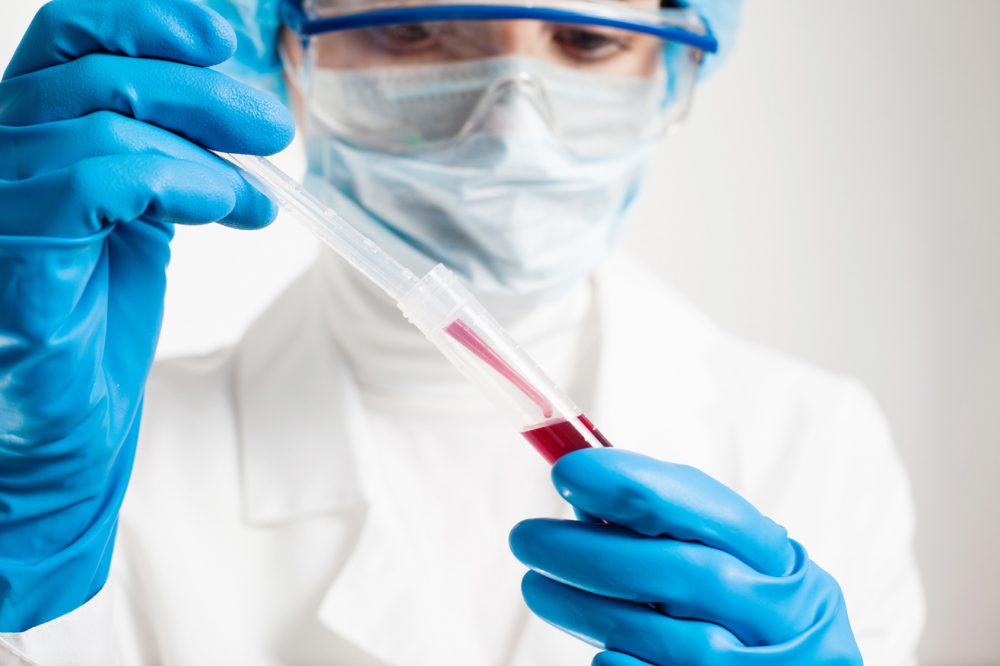Advertisment
New Data for Genentech’s Hemlibra reinforce safety profile in people with hemophilia A

Genentech, a member of the Roche Group announced results from the final analysis of the Phase IIIb STASEY study , which confirm the favorable safety profile of Hemlibra (emicizumab-kxwh), consistent with the Phase III HAVEN clinical program. In the analysis, no new safety signals were identified with longer-term Hemlibra treatment in adults and adolescents with hemophilia A with inhibitors to factor VIII, the clotting protein that is missing or defective in people with hemophilia A. The data were presented at the virtual International Society on Thrombosis and Haemostasis (ISTH) 2021 Congress, July 17-21.
Nearly one in three people with severe hemophilia A develop factor VIII inhibitors, antibodies that bind to and block the efficacy of replacement factor VIII. People with hemophilia A with factor VIII inhibitors are at greater risk of more frequent bleeding, including life-threatening bleeds, and may face greater challenges in their day-to-day lives than people with hemophilia who do not have factor VIII inhibitors.
Hemlibra has been approved in more than 100 countries worldwide for the treatment of people with hemophilia A with factor VIII inhibitors.
The final analysis of the STASEY study included data from 193 people with hemophilia A with factor VIII inhibitors who received Hemlibra prophylaxis once-weekly for up to two years (median treatment duration of 103.1 weeks). The analysis did not show any new cases of thrombotic microangiopathy or serious thrombotic events (adverse events [AEs] that have been observed in people with bleeding disorders) related to Hemlibra. The most common AEs occurring in 10% or more of people in the STASEY study were joint pain (arthralgia; 17.1%), common cold symptoms (nasopharyngitis; 15.5%), headache (15.0%), injection site reaction (ISR) (11.4%) and fever (pyrexia; 10.9%). Thirty-five (18.1%) people reported a Hemlibra-related AE, with ISRs being the most common (9.8%).
In addition, the STASEY study reinforced that Hemlibra is associated with a low incidence of anti-drug antibody (ADA) development. Ten (5.2%) participants tested positive for ADAs, five (2.6%) of whom were classified as having ADAs that were neutralizing in vitro. In all 10 participants, ADA development did not affect the efficacy or safety of Hemlibra; none of the participants had ADAs that resulted in a decrease in Hemlibra plasma concentration, and none of the ADA-positive participants experienced a treated bleed. In addition, the ADAs disappeared over time, as all study participants tested negative for ADAs at their last visit.
Hemlibra also continued to demonstrate effective bleed control in the STASEY study, with 82.6% of participants experiencing no bleeding episodes that required treatment. Annualized bleeding rates were consistent with previously reported observations from the pivotal HAVEN studies.
Hemlibra is approved to treat people with hemophilia A with factor VIII inhibitors in more than 100 countries worldwide and people with hemophilia A without factor VIII inhibitors in more than 80 countries worldwide, including the U.S., EU and Japan. Hemlibra has been studied in one of the largest clinical trial programs in hemophilia A with and without factor VIII inhibitors, including eight Phase III studies.





